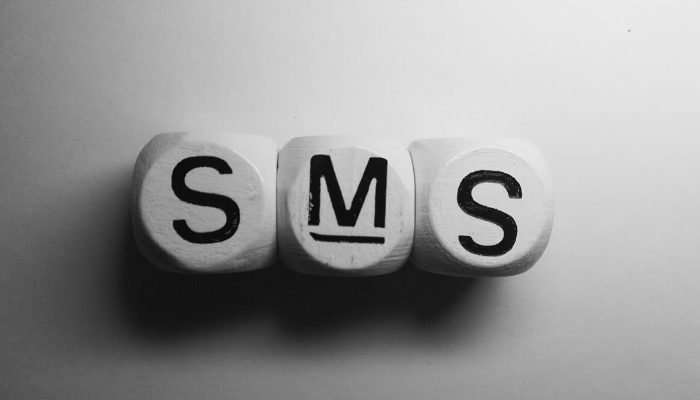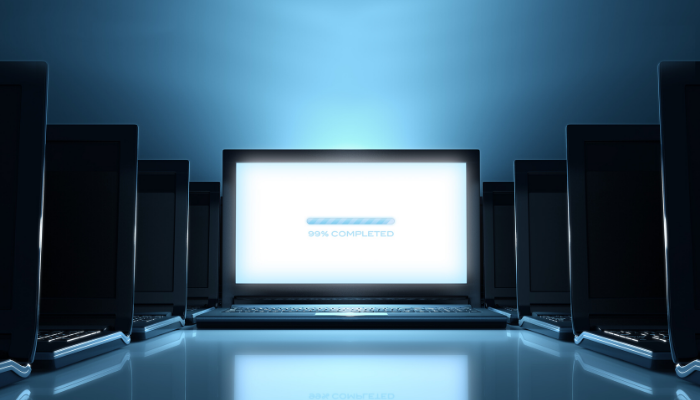COVID-19 has changed the way people live their everyday lives. People are being told to practice social distancing, company employees are largely working from home, and students are taking online classes.
Because hackers are targeting end users who do not have a secure work environment, some organizations may not be prepared to handle cybersecurity concerns brought upon the COVID-19 crisis.
The rate of cyberattacks is rising, and a lot of users are being tricked into providing their personal information. Some users might have even exposed their information and data without even knowing it.
The importance of cybersecurity during the COVID-19 crisis
 People use their personal devices such as laptops and tablets more often than before because they are working remotely.Employees communicate and share data with each other through the internet and save company data and other personal information that they don’t want hackers to know.But with just one click on a fraudulent link or an attachment, hackers could gain access to your personal information and company data. Cybersecurity has always been an important issue, but during the COVID-19 crisis, it has become more important than ever for individuals and companies to protect themselves from cyberattacks.
People use their personal devices such as laptops and tablets more often than before because they are working remotely.Employees communicate and share data with each other through the internet and save company data and other personal information that they don’t want hackers to know.But with just one click on a fraudulent link or an attachment, hackers could gain access to your personal information and company data. Cybersecurity has always been an important issue, but during the COVID-19 crisis, it has become more important than ever for individuals and companies to protect themselves from cyberattacks.
Types of cyberattacks
Hackers know that people are concerned about COVID-19, and therefore they are taking advantage of it. Here are some examples of cyberattacks in which hackers are exploiting this crisis:
Phishing for personal information
 There are different types of phishing; some might be in the form of a text or an email. When a user clicks on a suspicious link or an attachment in the email, it may direct the user to the phishing site. Hackers are also sending out phishing through SMS/text messages as well. They send out coronavirus-related messages or emphasize that it is sent by the government to gain the trust of the victims. When a phishing email or text indicates that it is sent out by the government, hackers know that without doubt victims are more likely to provide their personal information and click on links that are attached in the mail or text. Through these types of attacks, hackers can steal user’s information, background, achievements, and much more.
There are different types of phishing; some might be in the form of a text or an email. When a user clicks on a suspicious link or an attachment in the email, it may direct the user to the phishing site. Hackers are also sending out phishing through SMS/text messages as well. They send out coronavirus-related messages or emphasize that it is sent by the government to gain the trust of the victims. When a phishing email or text indicates that it is sent out by the government, hackers know that without doubt victims are more likely to provide their personal information and click on links that are attached in the mail or text. Through these types of attacks, hackers can steal user’s information, background, achievements, and much more.
Phishing for financial gain
Phishing emails with false advice and cures related to COVID-19 phishing typically include an attachment that says that it contains the “secret cure” for the virus, and it makes users curious so they would click on the mail. But when the victim clicks on the attachment, malware that designed to steal personal information is installed in the device. Users should also be careful of false charity claims. Hackers make false charity campaigns, which they say are collecting donations to fight the spread of the coronavirus and help those in need. They urge users to make a payment online so they could collect their personal information like name, email address, home address, and of course, banking information.Company employees, students, and other users across all industries must be more careful when opening a text or an email that is in the spam folder and any email where the sender information is not clear or someone you are not sure of.
Website defacement
 Since businesses are restricted from having face-to-face trade due to the spread of coronavirus, companies are relying on their online presence for sales. This means that businesses that are not accustomed to using online means to sell their products or services are now battling with the dangers of cyberattacks. And those increasing their digital presence are more likely dealing with more cyberattacks than before.One example of a cyberattack that can impact a business is website defacement. When a website gets “defaced” by hackers, hackers vandalize the homepage and other pages by changing the actual web content. This becomes a problem because when a user enters the site and they see a site riddled with inappropriate content and graphics related to fake coronavirus news, spammy links, and other forms of vandalism, the site loses credibility.Since users are unable to engage with the website and subscribe to the site’s product or services, it results in direct revenue loss for the company. It also means a tarnished brand, loss of customer trust, and skewed analytics.
Since businesses are restricted from having face-to-face trade due to the spread of coronavirus, companies are relying on their online presence for sales. This means that businesses that are not accustomed to using online means to sell their products or services are now battling with the dangers of cyberattacks. And those increasing their digital presence are more likely dealing with more cyberattacks than before.One example of a cyberattack that can impact a business is website defacement. When a website gets “defaced” by hackers, hackers vandalize the homepage and other pages by changing the actual web content. This becomes a problem because when a user enters the site and they see a site riddled with inappropriate content and graphics related to fake coronavirus news, spammy links, and other forms of vandalism, the site loses credibility.Since users are unable to engage with the website and subscribe to the site’s product or services, it results in direct revenue loss for the company. It also means a tarnished brand, loss of customer trust, and skewed analytics.
How do we protect ourselves from these kinds of cyberattacks?
The COVID-19 crisis has affected every business in some kind of way. While cybersecurity may not be on everyone’s minds, it’s important to realize that malicious actors will always try to take advantage of individuals and companies for personal or financial gain with little morality. So what can you and your company do to keep safe from cyberattacks?Unfortunately, there is no one-size-fits-all type of cybersecurity solution that works for every company. Being “cybersafe” really depends on the preparedness of the organization and how seriously they take cybersecurity measures.We’ve compiled several tips for developing a cybersecurity plan and for in a previous blog post!We may not have all the answers but as a website security provider, we’ve highly aware of the rising trends such as the shift to remote work environments. For this reason, we are offering our own remote security solution to continuously monitor, detect, and block threats and only allow authenticated users to connect to your remote work environment. Our Remote Access Solution is being offered for free! Learn more about its key features.





